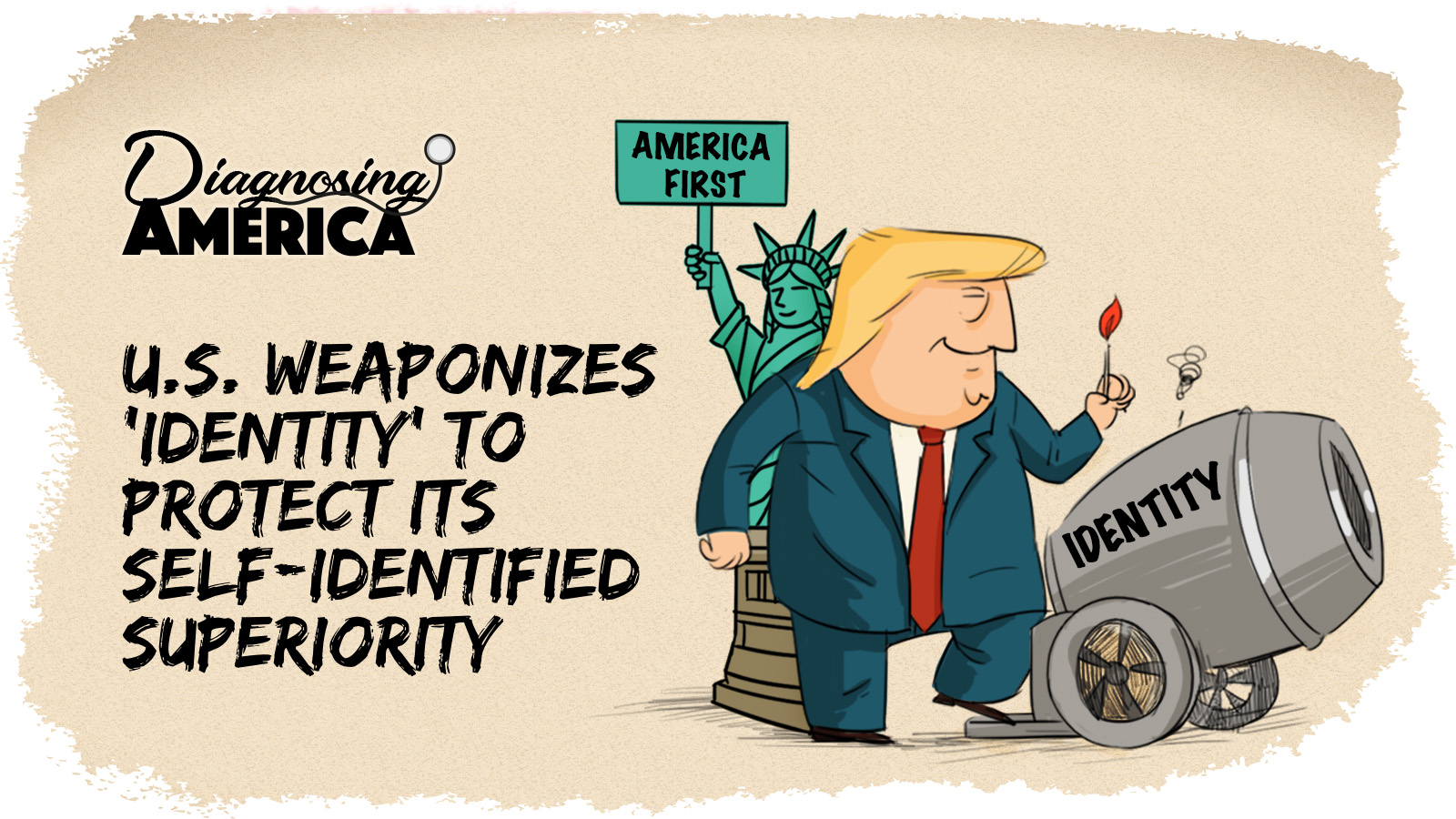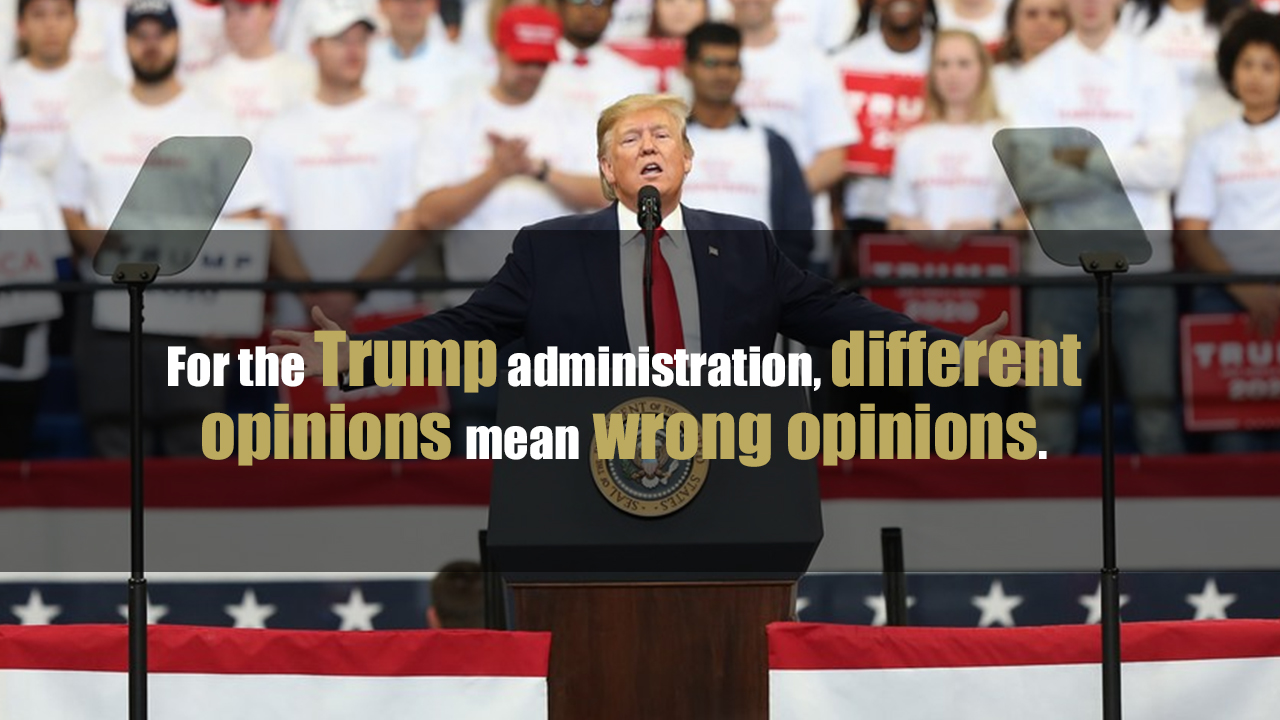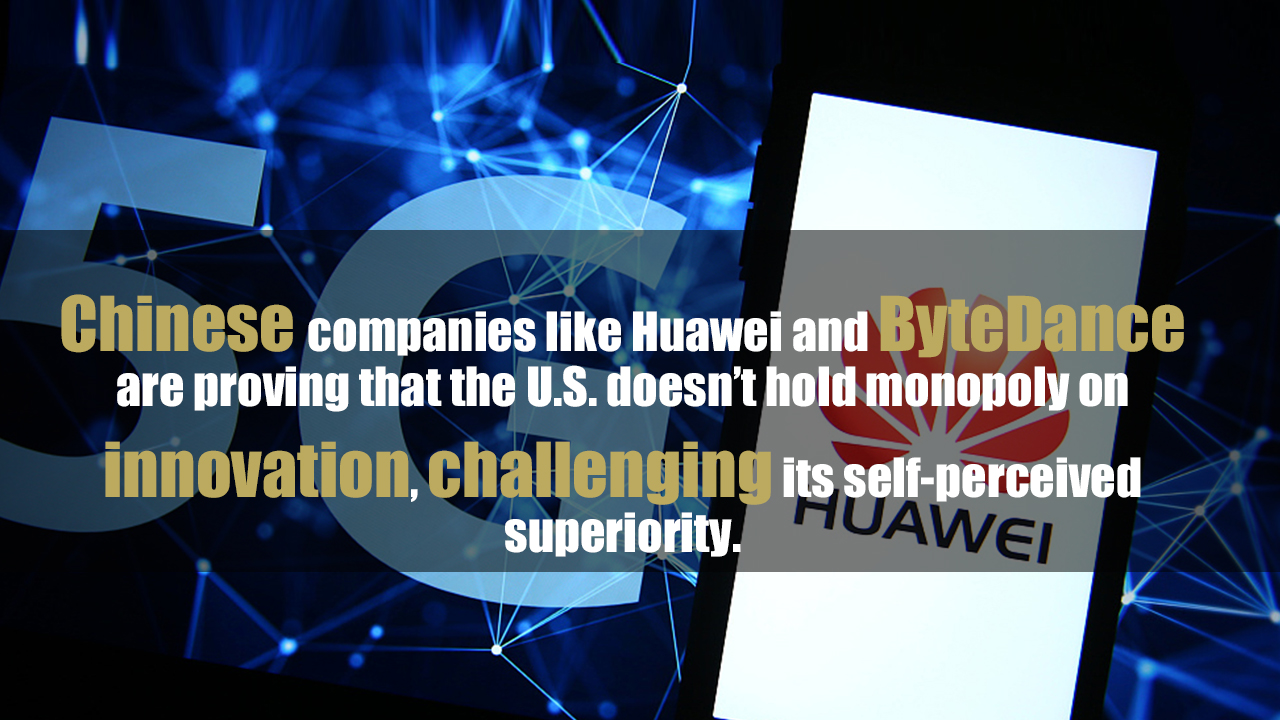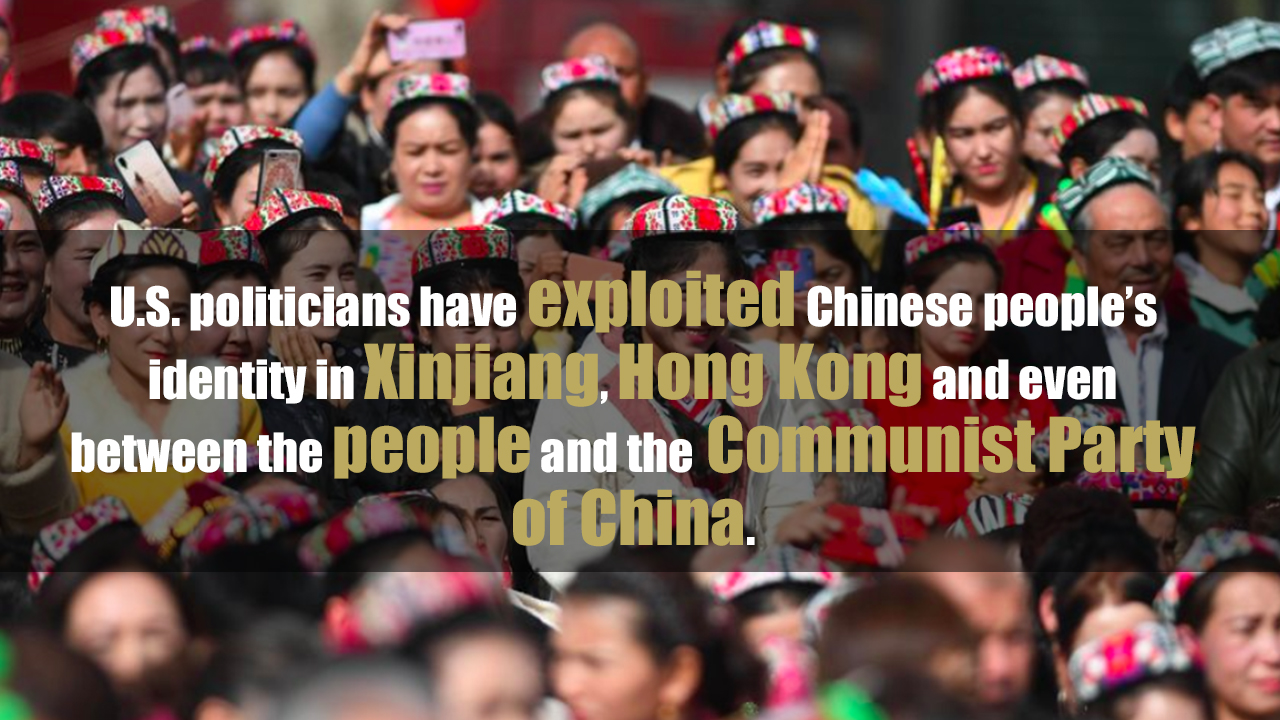
Editor's note: Waging tariff fights, quitting international bodies, sowing dissent between the EU and Russia, confronting China on all fronts, the United States is rewriting its global role under Donald Trump. Is the country becoming a source of unrest in the world? CGTN Insight introduces Diagnosing America, a mini-series investigating what lies behind the United States' repeated challenges to the international order. The fifth episode is on U.S.'s identity politics.
Identity politics is no stranger to U.S. politicians. Its definition may be amorphous, but it is commonly referred to as a form of politics where people believe they belong to a certain age, ethnic, religious, national or other identity and politicians use the identity of these various groups to advance themselves or the people's political agenda.
People used to view such form of politics as a way to seek political equality – to empower those who are overlooked or discriminated against with enough strength to bargain on equal grounds. Back in 2016, when then-candidate Donald Trump battled former Secretary of State Hillary Clinton for the presidency, each claimed to be championing those who were in the "minority" and without power.
However, since Trump moved into the White House, identity politics took on a more virulent form. The all-encompassing "America First" directive, the repeated emphasis on Judeo-Christian values, the not-so-subtle threats of "the U.S. will be taking names" of those who oppose certain resolutions, and the explicit and implicit endorsement of racism upended the fundamentals of the traditional identity politics. In place of a focus on granting power to the weak, a sense of superiority and inviolability took over.
In U.S. domestic politics, such an identity-oriented way of doing things has polarized society to an extent unseen in modern U.S. history. The "America First" superiority clashes head-on with the traditional focus on diversity and inclusivity. Instead of exhibit tolerance, the Trump government and the right-wing, nationalist powers in the U.S. are going after ideological and political "purity" – a different opinion means a wrong opinion.
Such behavior has percolated into the U.S. diplomacy. Whether it is about morality, economy or politics, the U.S. hardened on its belief of exceptionalism and a destined future of leading the world.

China, for better or worse, is indeed making the U.S. feel insecure about its vaunted leadership.
Not so long ago, the U.S. was the leading force in digital technology, and its social media platforms dominated the internet. China was still one trying to catch up. Now, China has advanced its 5G technology to a point where deserting China's telecom equipment could cause tech-savvy countries like the UK to delay its 5G roll-out for years and exact billions of pounds as cost. Social media app TikTok has been downloaded more than 175 million times in the U.S. alone. It is the most downloaded app on the Apple app store.
China's tech development and the rocketing popularity of its products present to the U.S. something it has never faced before, causing the U.S. to pounce. Without evidence, without thorough investigation, or even the pretense of one, U.S. politicians claimed that Huawei presented a "national security threat" to the U.S. government and its population, and therefore banned the company from operating on its soil. It attempted to pressure other governments who were considering tapping into Huawei's technology into banning the company. The Observer reported that Britain's decision to disallow the company was a direct result of "pressure from President Donald Trump."
International suppression is only one of the ways that the U.S. is defending its identity. Exploiting and manipulating China's is another. In the last two years, China hawks like Secretary of State Mike Pompeo and Senator Marco Rubio have tried to divide the idea of "Chinese people" into different groups of population and instigate conflicts between them. And by labeling different groups with different adjective, they are trying to paint China as a problematic and oppressive country that the international community should avoid.

When it comes to regions like Xinjiang, Pompeo has accused China of stepping up "its campaign of systematic repression of Uygurs and members of other Muslim minority groups that includes widespread arbitrary detention and forced labor." When the U.S. sanctioned the Xinjiang Production and Construction Corps, he labelled China's treatment towards minorities as "the stain of the century." Disregarding the fact that China has repeatedly stressed its policy in Xinjiang is about security and that Pompeo couldn't present credible evidence to justify his rhetoric – even the rhetoric itself has been based on falsehoods.
Lionel Vairon, former French diplomat and sinologist, pointed out in a recent interview that most of the talks on Xinjiang in the West come from one guy – Adrian Zenz, a computer science teacher "supported by far-right organization in the U.S. with people coming from the CIA," disguised as a China expert. There's no credibility in Zenz's so-called "reports," and there's no credibility in these China-hawks' characterization.
Similar tactics have been used on Hong Kong. The U.S. tried to paint the protesters as champions for human rights and democracy while depicting the Chinese government as the authoritarian overlord suppressing its own people. By giving all the protesters the same identity, the U.S. government deliberately stays indifferent towards the violence the rioters perpetrated and, at least rhetorically, shields them from punishments.
Yet, when Chief Executive of Hong Kong Special Administrative Region Carrie Lam postponed the election on the ground of threats to public health, American politicians jumped at the chance to condemn such act as suppressing people's votes and sanctioned Lam herself. Instead of truly valuing the most fundamental human right – the right to life, China hawks in the U.S. only focus on fanning the flame of identity politics even more, trying to turn a public health crisis into a catalyst that spawns more chaos and destabilizes the government.
More recently, Pompeo elevated the identity conflict to a higher level. In his now infamous speech at the Nixon Presidential Library, Pompeo called on the Chinese people to change the Communist Party of China. "We opened our arms to Chinese citizens, only to see the CCP exploit our free and open society," he claimed, adding that "1.4 billion people who are surveilled, oppressed, and scared to speak out."

The South China Morning Post described these words as Pompeo hoping to "drive a wedge between China's people and Communist Party." And it is right. By appearing to "sympathize" with the "oppressed majority," Pompeo wants to woo the world and the Chinese people into believing that they are actually been oppressed, thereby aligning himself with these people against the CPC. After all, what better way to undermine the stability of a nation and stall the development of China than turning its people against its government and the party?
The U.S. is used to using identity politics to destabilize the country by making its people lose faith in their government. Throughout the Cold War and its crusade in the Middle East, many governments fell because the U.S.'s rhetoric and intervention created conflicts within the country where they didn't exist before. Whether it is ethnicity or political identity, China hawks are trying to tap into any differences or diversities and turn them into points of conflict. And as China grows more powerful and advanced, U.S. politicians will label the Chinese government in more negative ways in hopes of undermining its international reputation and legitimacy, shielding itself from any potential or existing challenges to its hegemony.
The same goes for the Trump administration. Taking on China diverts people from the focus on domestic ordeals. As long as China dominates the headlines, there'd be less people informed of the rising COVID-19 infections and deaths in the U.S., less poor citizens become aware of their government is even unable to come to a deal of coronavirus rescue package, and less voters reminded of the current administration's inability to govern. With less than three months to go until Election Day, Trump administration would want to keep China in the news to shield itself from its people's frustration towards its failures, thereby giving Trump more leverage to pull off a win in November.
As long as the electoral battle goes on, it could be anticipated that American politicians would only go further in their weaponization of identity into protecting the one thing they treasure the most – their superiority. Whether it is in domestic politics and in international relations, the Trump administration would exploit China in order to ensure its hegemony and Trump's political future. But, as the world's sole superpower launches baseless attacks against the second-largest economy, international stability becomes the collateral damage, and all nations have to pay with prosperity and national welfare.
More in this series:
Pathogeny for U.S. withdrawal fever
Partisan politics drags U.S. towards failed-state status
Trump against Europe: Weaponizing the relationship for his benefit
America trapped in populism
(If you want to contribute and have specific expertise, please contact us at opinions@cgtn.com.)